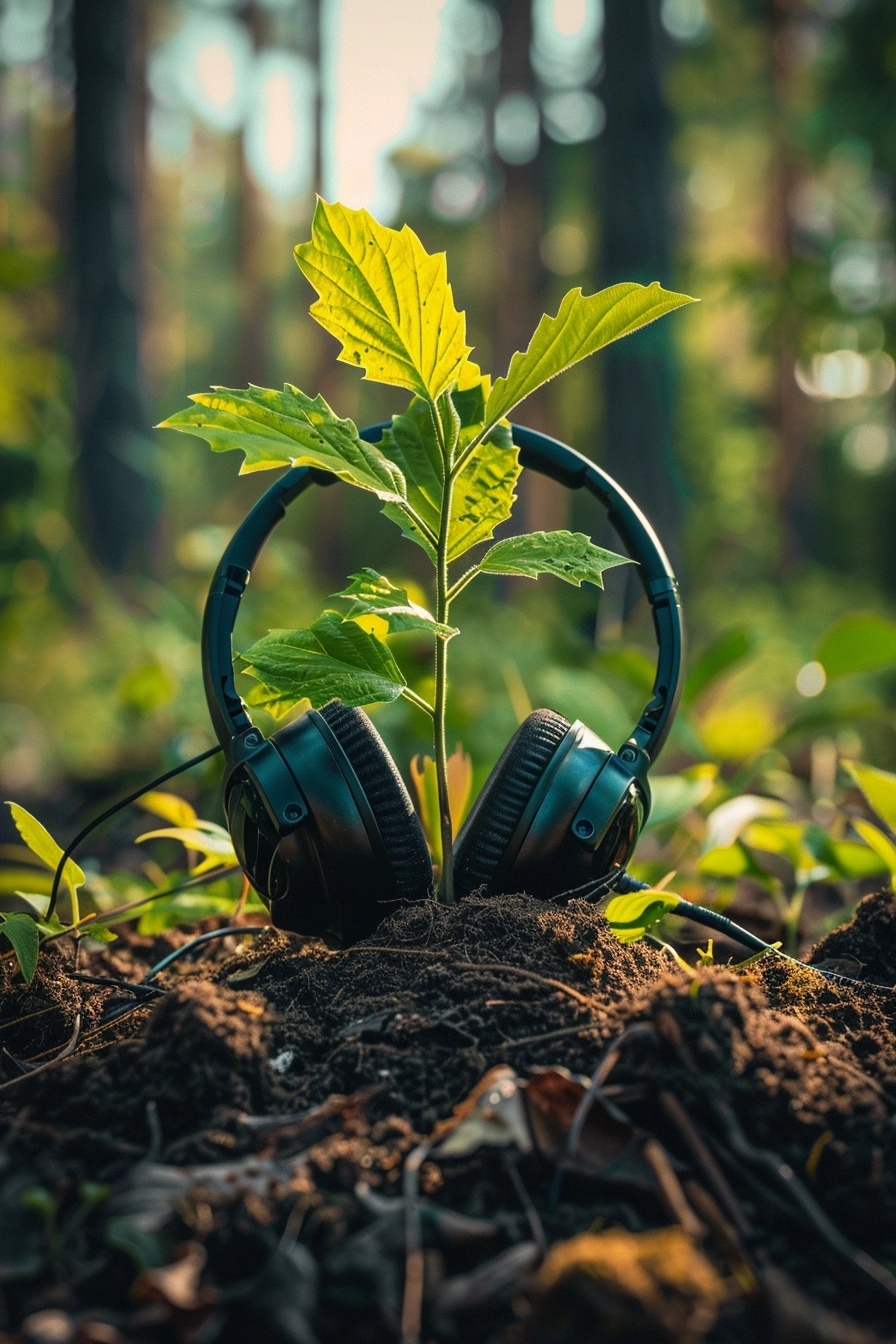As a plant enthusiast, I have always marveled at the wonders of nature and the incredible adaptability of plants. Recently, I came across some intriguing research that suggests playing music can have a profound impact on plant growth. This piqued my curiosity, prompting me to explore the fascinating connection between music and plant development.
Plant growth experiments involving music have shown promising results. It turns out that sound waves stimulate plant cells, encouraging the movement of nutrients and strengthening their immune systems. Just like how music can evoke emotions in humans, it appears that plants also have a unique response to different genres of music.
Key Takeaways:
- Playing music can promote the growth of plants by stimulating their cells and enhancing nutrient movement.
- Plants have shown preferences for certain genres of music, with classical and jazz music often promoting growth.
- The use of sound waves in agriculture and greenhouses has demonstrated positive effects on crop yield.
- While critics call for further research, many scientists and farmers believe in the benefits of playing music for plants.
- Regardless of the scientific consensus, providing a nurturing environment for plants can only be beneficial.
How Plants Respond to Music
When it comes to music, plants may not have ears like humans do, but that doesn’t mean they can’t respond to sound vibrations. In fact, studies have shown that playing music can have a direct impact on plant growth and development.
When exposed to music, the vibrations stimulate the cells in plants, leading to the movement of nutrients throughout the plant. This increased nutrient flow promotes new growth and overall plant health. It’s as if the plants are dancing along to the rhythm of the music, thriving in response to the sound waves.
Interestingly, different genres of music can have varying effects on plant growth. Classical and jazz music, known for their soothing and melodic tones, have been found to promote growth and enhance plant vitality. On the other hand, harsher genres such as metal music may induce stress in plants. Just like humans, plants seem to have their own musical preferences.
Researchers have also discovered that plants possess the ability to distinguish between different types of sound, including various genres of music, nature sounds, and even traffic noise. This remarkable ability suggests that plants can learn about their environment through sound. It’s as if they’re eavesdropping on the world around them, picking up valuable information to aid in their growth.
The beneficial effects of music on plants have led to the emergence of music therapy for plants. Just as music therapy is used to promote well-being in humans, it has been found to enhance plant growth and overall health. In controlled greenhouse conditions, music therapy has shown positive results, increasing crop yield and reducing pests.
Moreover, the use of sound waves in agriculture presents an environmentally friendly alternative to chemical fertilizers and herbicides. By harnessing the power of music, farmers can potentially reduce their reliance on harmful chemicals while still achieving a bountiful harvest.
“Playing music for plants provides them with an auditory feed that stimulates their growth and development. It’s a testament to the interconnectedness of all living things and the power of sound.” – Dr. Botanica, Plant Scientist
While the positive effects of music on plant growth are evident, there is still ongoing debate in the scientific community regarding the extent of its impact. Critics argue that more research is needed to establish a definitive connection between music and plant growth, as certain variables such as light, soil, and water conditions may have influenced the results of previous studies.
Regardless of the controversy, many scientists and farmers believe that playing music for plants can have a positive impact on their development. After all, plants, like humans, thrive in nurturing and harmonious environments.

The Controversy Surrounding Music and Plant Growth
Despite the positive findings from various studies, there is still controversy surrounding the connection between music and plant growth. Critics argue that more research needs to be done to establish a definitive link.
They claim that the experiments conducted so far may have had flaws in controlling variables such as light, soil, and water conditions. Some even suggest that the positive effects observed in these studies may be due to the increased attention and care given to the plants when music is played.
However, proponents of music therapy for plants believe that the positive results cannot be dismissed. They advocate for further research to explore the potential benefits of using music to promote plant growth.
While there may be controversy surrounding the topic, it is clear that the connection between music and plant growth requires more investigation. Until then, it is important to evaluate the existing evidence critically and remain open to the possibilities that music may have on plant development.

Conclusion
In conclusion, the relationship between music and plant growth is a subject that continues to be debated within the scientific community. Although there is evidence suggesting that playing music can have a positive impact on plant development and their immune systems, further research is necessary to establish a concrete connection.
However, many experts in the field, including scientists and farmers, firmly believe in the benefits of playing music for plants. They have observed increased yields and reduced pest infestation in greenhouse environments where music is incorporated. Regardless of the ongoing scientific discussions, there is no harm in providing your plants with a nurturing environment that includes some soothing tunes.
Plants are living organisms that can thrive in an environment filled with care and attention. So why not create a pleasant atmosphere for your green friends and let them enjoy some beautiful melodies? Whether or not music directly influences plant growth, the act of playing music for your plants can bring joy to both you and your leafy companions.

